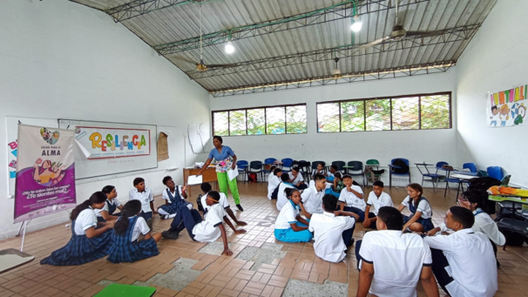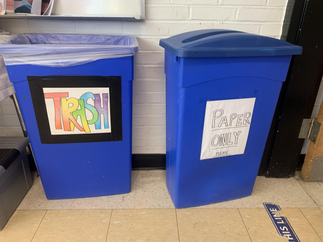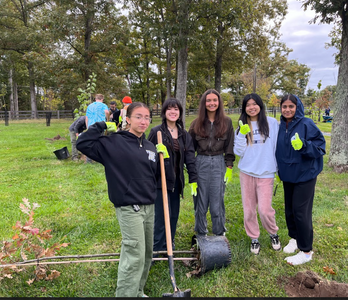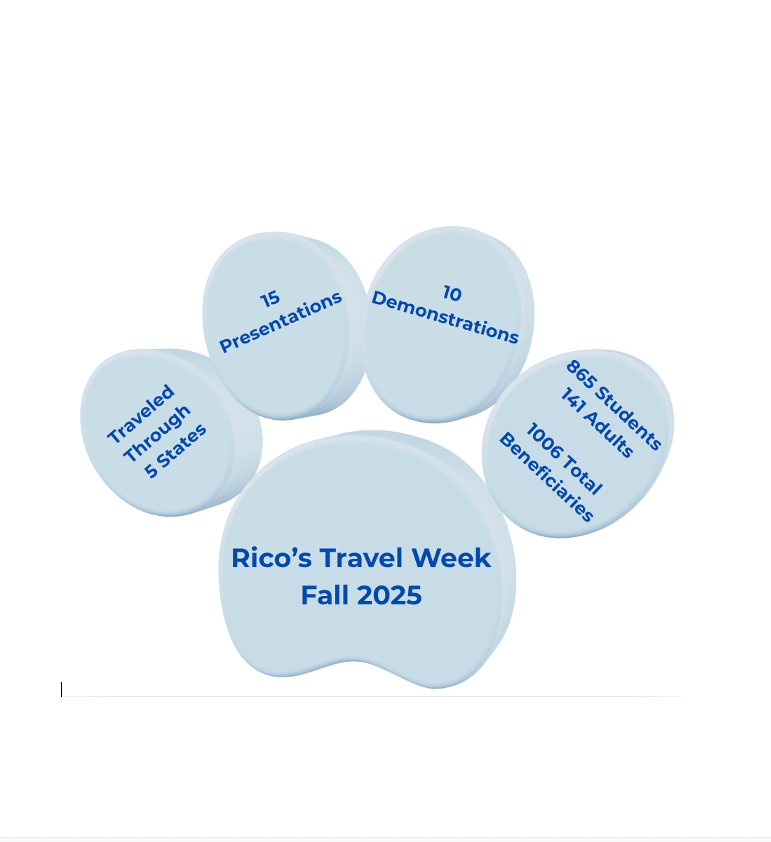Creating Safe, Supportive, and Environmentally Conscious Communities
- Luz Angela G.

- Dec 19, 2023
- 3 min read
The Peace Makers and Problem Solvers (PMPS) program recently concluded another successful one-year cycle. The immersive leadership development, community engagement, and cross-cultural exchange initiative engaged 19 students and two teachers from Poolesville, Maryland in the USA, and La Provincia, Antioquia in Colombia. Drawing from an experiential learning model and real-life encounters, the PMPS participants became proactive agents of change, addressing social issues and creating a positive impact on their respective communities.

Through a mixture of guided virtual exchange sessions and a thoughtfully crafted classroom curriculum, participants honed their leadership and critical thinking skills. The students worked collectively to identify social issues that held personal significance for each of them and created comprehensive action plans to effectively address these issues. Working together, they translated their ideas from mere concepts to impactful real-world projects.
Colombian PMPS Students Conduct a “No More Bullying” Campaign
The PMPS students at La Provincia School in Carepa, Antioquia, Colombia, designed the "No More Bullying" campaign for their social impact project to conduct awareness of and take action against bullying in their community. The students created a series of workshops, ranging from student-led initiatives to psychologist-guided explorations on the dynamics of bullying. The program aimed to foster community resilience and cultivate a culture of compassion among students, teachers, and parents. The project's final impact was substantial, reaching over 300 students across the middle and high school, involving 22 teachers, and garnering the support of 45 parents.

As part of the campaign, the team also created visually stunning posters to capture attention and convey vital information about the impacts of bullying and ways to positively redirect such behavior. Placed throughout the school, each poster was crafted to educate, guide, and promote a safer, more inclusive environment, ultimately building a united community against bullying!
U.S. PMPS Students Conduct Four Distinct Environmental Initiatives
For their social impact project, the U.S. PMPS team at Poolesville High School, Maryland, U.S.A. implemented four significant environmental initiatives in their community, impacting over 1,000 people:
1. Arboretum Improvement
Recognizing the importance of a more vibrant school environment, the team conducted clean-up activities targeting litter, waste, invasive plant removal, and other improvements for the school-ground arboretum. The effort not only beautified the school but also created a well-maintained space for the entire community to enjoy.
2. Labeling Recycling Bins
In collaboration with the National Art Honor Society, the team remade 23 damaged labels on waste bins and properly labeled 37 trash, paper, and mixed recycling bins throughout the school community. Providing clear guidance on proper recycling aims to improve waste disposal practices and lend to a more environmentally conscious and sustainable school environment.
3. Tree Planting
The team successfully planted over 100 diverse saplings, featuring species such as Black Gum, American beech, and various oaks and maples. They are now preparing for the spring season by storing acorn seeds to start a student-led tree nursery program next year. The students were proud to secure a $1,000 grant from the MCPS Student Climate Action Council to expand the tree planting program on the Poolesville campus. The initiative is a powerful example of the positive impact student-led environmental action can have on the campus and wider community.
4. Storm Drain Labeling
The students labeled 16 storm drains throughout the community to raise awareness about their direct impact on the Chesapeake Bay watershed. The effort strives to educate the community on the importance of accurate waste disposal practices and environmental preservation.

Bound together by passion and leadership, the dedicated young PMPS leaders in both Colombia and the U.S. played a pivotal role in driving positive change. Collaboratively, they helped shape a school community that prioritizes safety, support, and environmental consciousness, serving as an inspirational model for us all.




































Comments